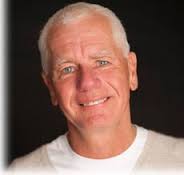Life and death are a package deal. You cannot pull them apart.
In Japanese Zen, the term shoji translates as 'birth-death'. There is no separation between life and death other than a small hyphen, a thin line that connects the two.
We cannot be truly alive without maintaining an awareness of death. Death is not waiting for us at the end of a long road. Death is always with us, in the marrow of every passing moment. She is the secret teacher hiding in plain sight. She helps us to discover what matters most. And the good news is we don't have to wait until the end of our lives to realise the wisdom that death has to offer.
Over the past thirty years, I have sat on the precipice of death with a few thousand people. Some came to their deaths full of disappointment. Others blossomed and stepped through that door dull of wonder. What made the difference was the willingness to gradually live into the deeper dimensions of what it means to be human.
Preparing for end of life
To imagine that at the time of our dying we will have the physical strength, emotional stability, and mental clarity to do the work of a lifetime is a ridiculous gamble. Reflecting on death can have a profound and positive impact not just on how we die, but on how we live. In the light of dying, it's easy to distinguish between the tendencies that lead us toward wholeness, and those that incline us toward separation and suffering. The word wholeness is related to 'holy' and 'health', but it is not a vague, homogenous oneness. It is better expressed as interconnectedness. Each cell in our bodies is a part of an organic, interdependent whole that must work in harmony to maintain good health. Similarly, everybody and everything exists in a constant interplay of relationships that reverberates throughout the entire system, affecting all the other parts. When we take action that ignores this basic truth, we suffer and create suffering. When we live mindfully of it, we support and are supported by the wholeness of life.
The habits of our lives have a powerful momentum that propels us toward the moment of our death. The obvious question arises: What habits do we want to create? Our thoughts are not harmless. Thoughts manifest as actions, which in turn develop into habits, and our habits ultimately harden into character. Our unconscious relationship to thoughts can shape our perceptions, trigger reactions, and predetermine our relationship to the events of our lives. We can overcome the inertia of these patterns by becoming mindful of our views and beliefs, and by doing so, we make a conscious choice to question those habitual tendencies. Fixed views and habits silence our minds and incline us toward life on automatic pilot. Questions open our minds and express the dynamism of being human. A good question has heart, arising from a deep love to discover what is true. We will never know who we are and why we are here if we do not ask uncomfortable questions.
Why thinking about death is healthy
Without a reminder of death, we tend to take life for granted, often becoming lost in endless pursuits of self-gratification. When we keep death at our fingertips, it reminds us not to hold on to life too tightly. Maybe we take ourselves and our ideas a little less seriously. We let go a little more easily. When we recognise that death comes to everyone, we appreciate that we are all in the same boat, together. This helps us to become a bit kinder and gentler with one another.
We can harness the awareness of death to appreciate the fact that we are alive, to encourage self-exploration, to clarify our values, to find meaning, and to generate positive action. It is the impermanence of life that gives us perspective. As we come in contact with life's precarious nature, we also come to appreciate its preciousness. Then we don't want to waste a minute. We want to enter our lives fully and use them in a responsible way. Death is a good companion on the road to living well and dying without regret.
The wisdom of death has relevance not only for those who are dying and their caregivers. It can also help you deal with loss, or a situation in which you feel caught in small-mindfulness or are feeling out of control - whether you are going through a breakup or divorce, coping with an illness, a layoff, the shattering of a dream, a car accident, or even a fight with a child or colleague.
Shortly after the famous psychologist Abraham Maslow suffered a near-fatal heart attack, he wrote in a letter: "The confrontation with death - and the reprieve from it - makes everything look so precious, so sacred, so beautiful that I feel more strongly than ever the impulse to love it, to embrace it, and to let myself be overwhelmed by it. My river has never looked so beautiful...Death, and its ever-present possibility, makes love, passionate love, more possible."
I am not romantic about dying. It is hard work. Maybe the hardest work we will ever do in this life. It doesn't always turn out well. It can be sad, cruel, messy, beautiful, and mysterious. Most of all it is normal. We all go through it.
None of us get out of here alive.

